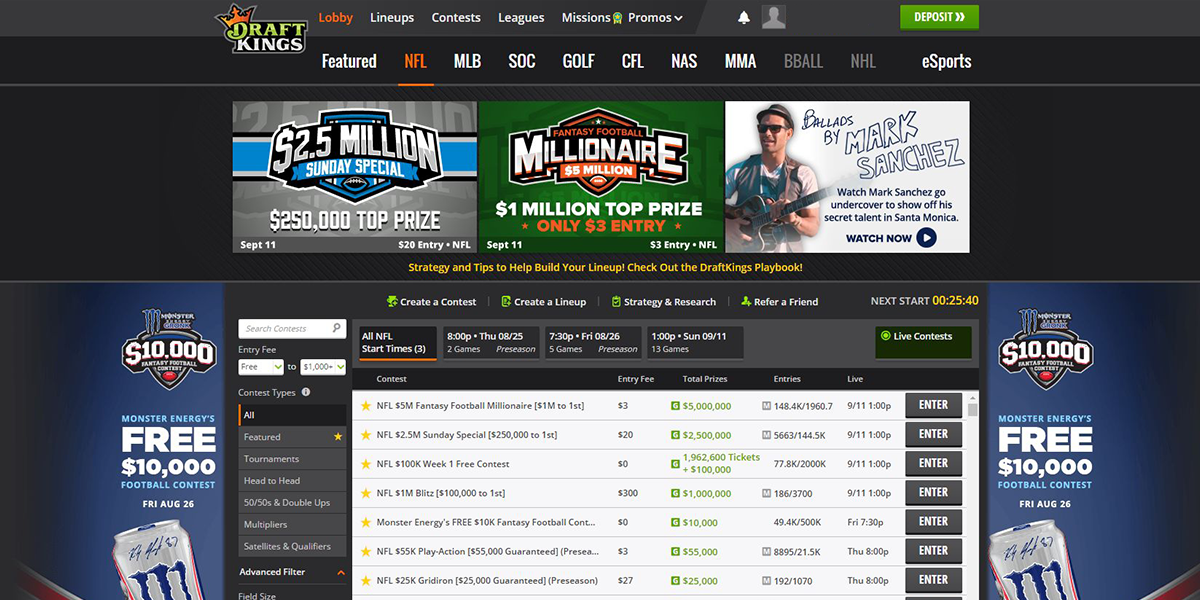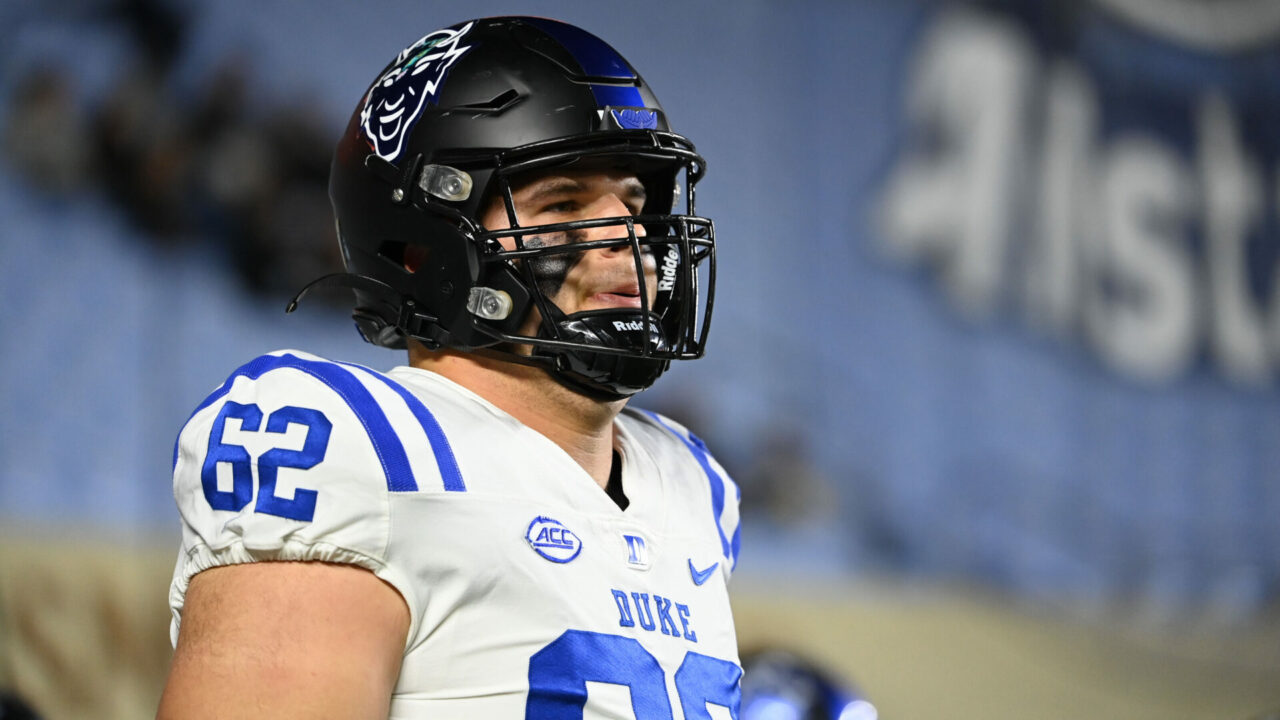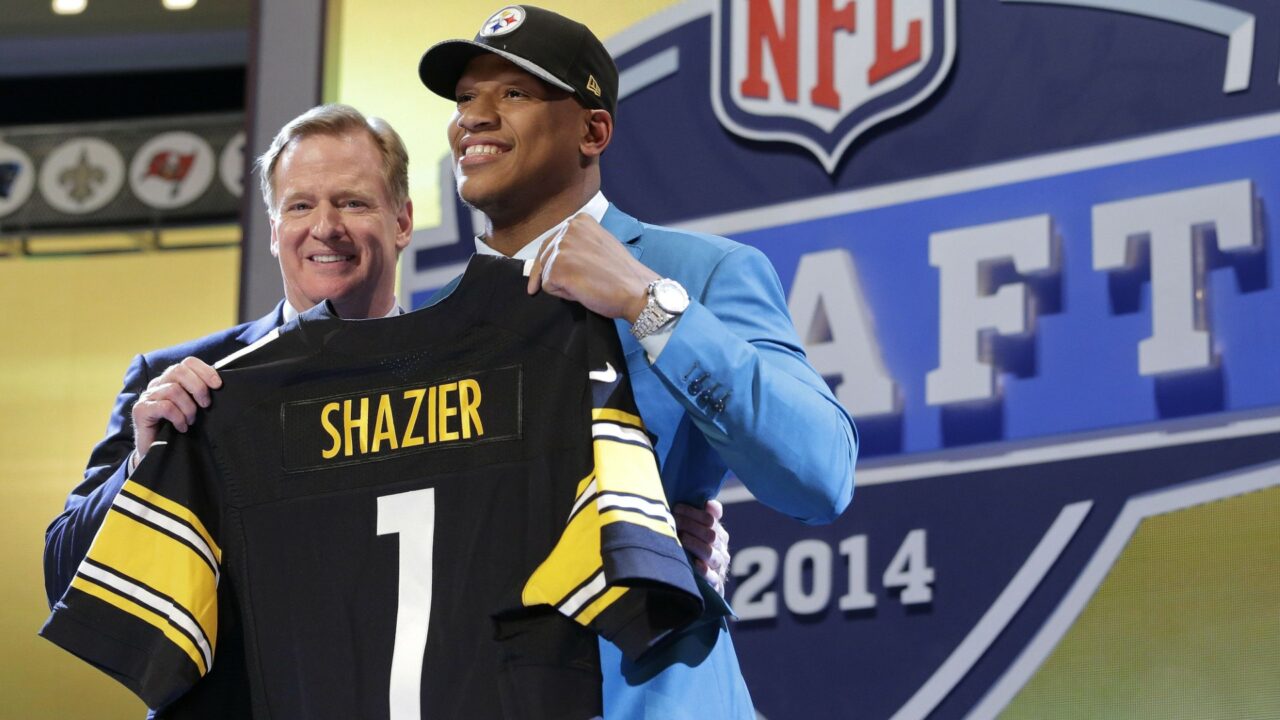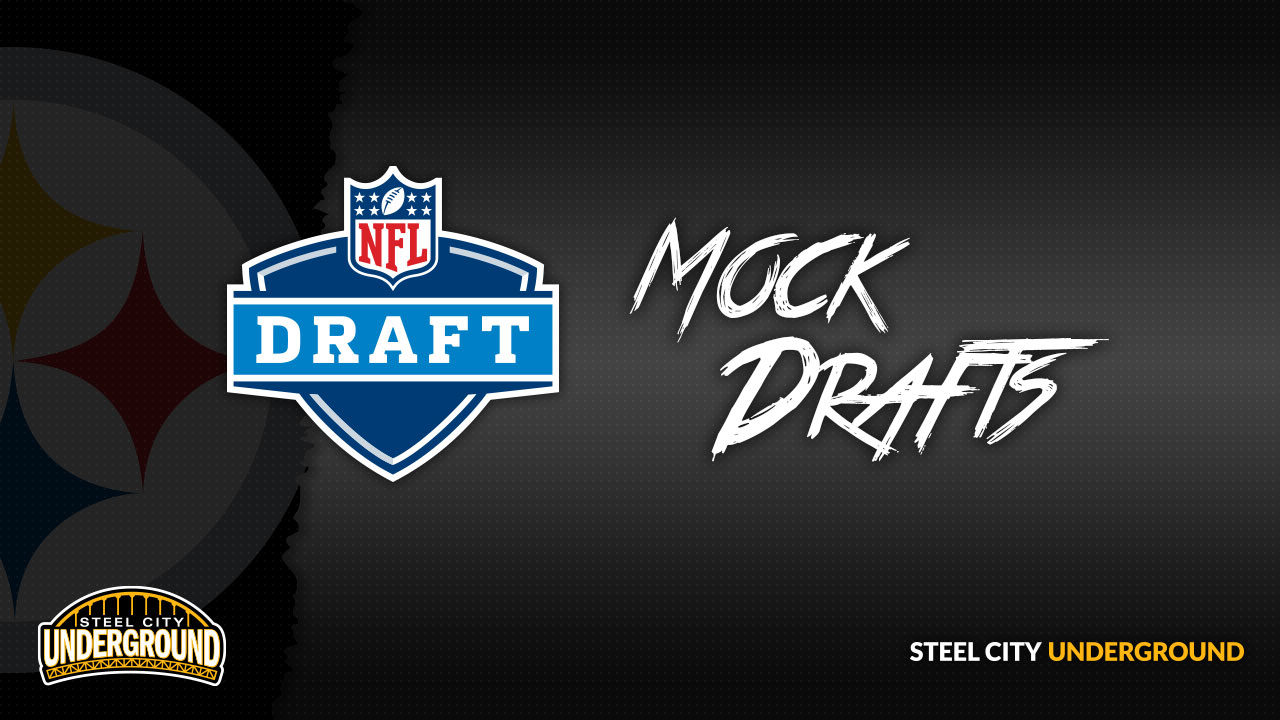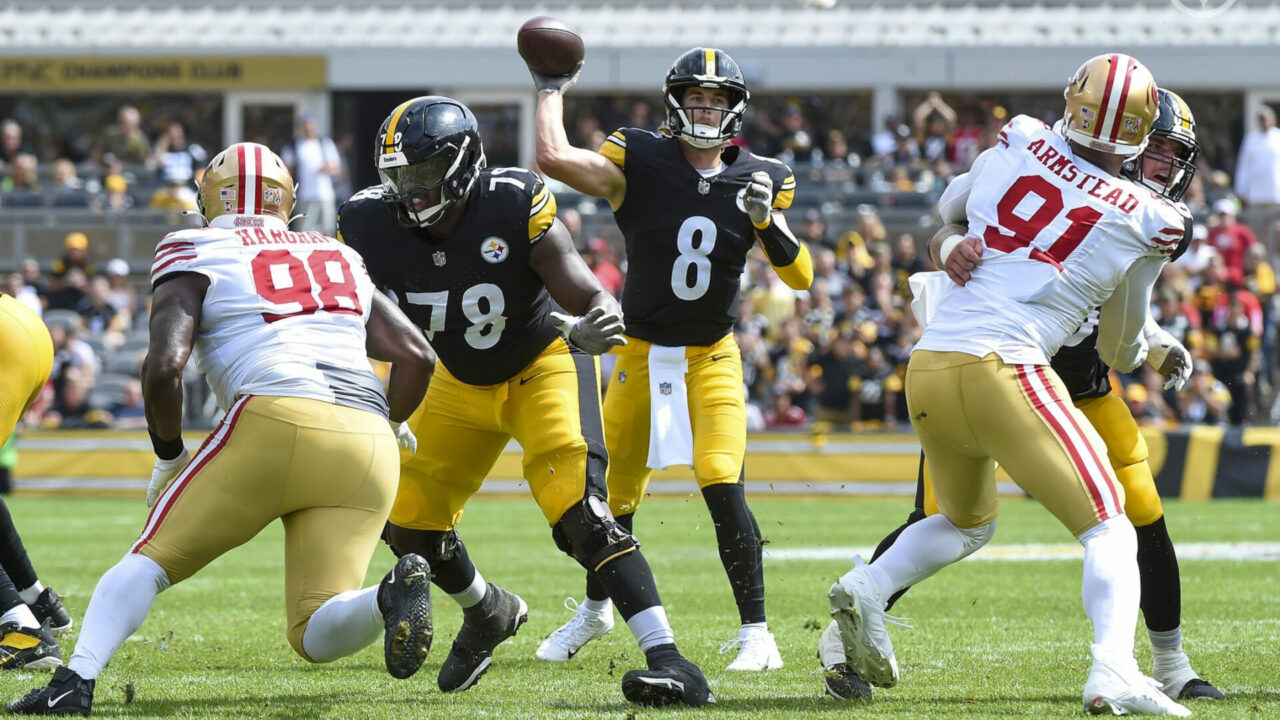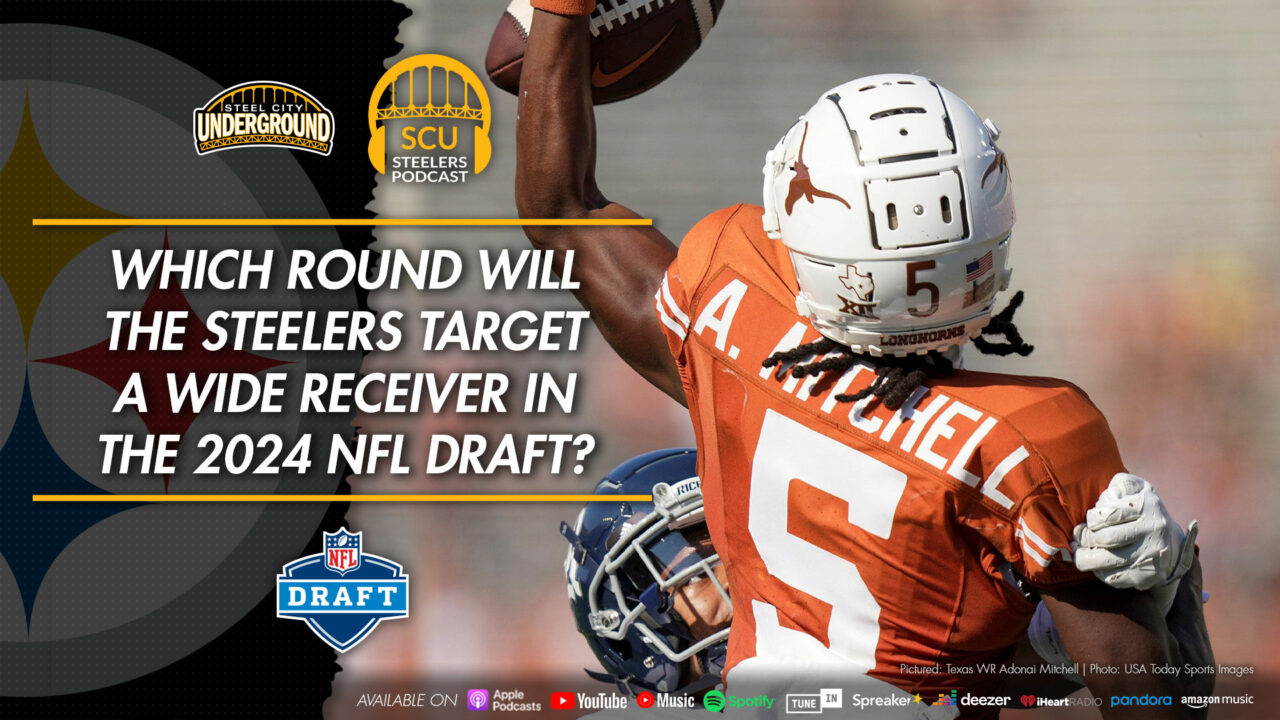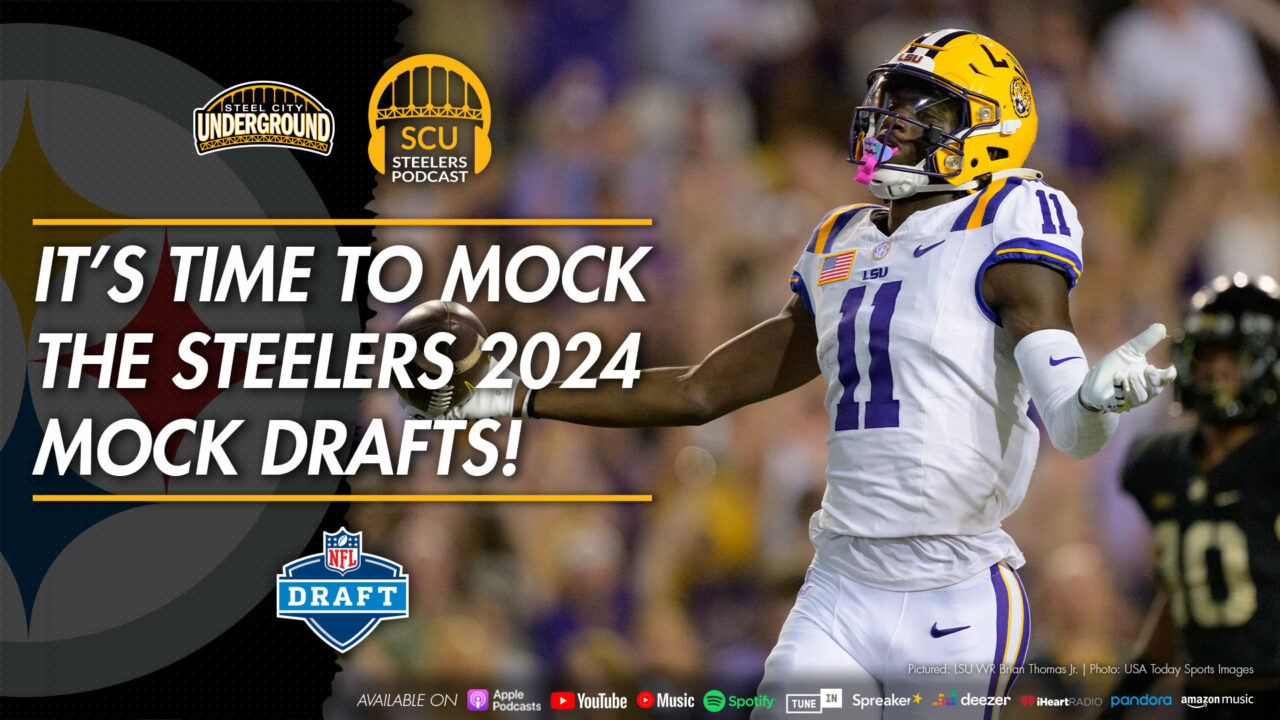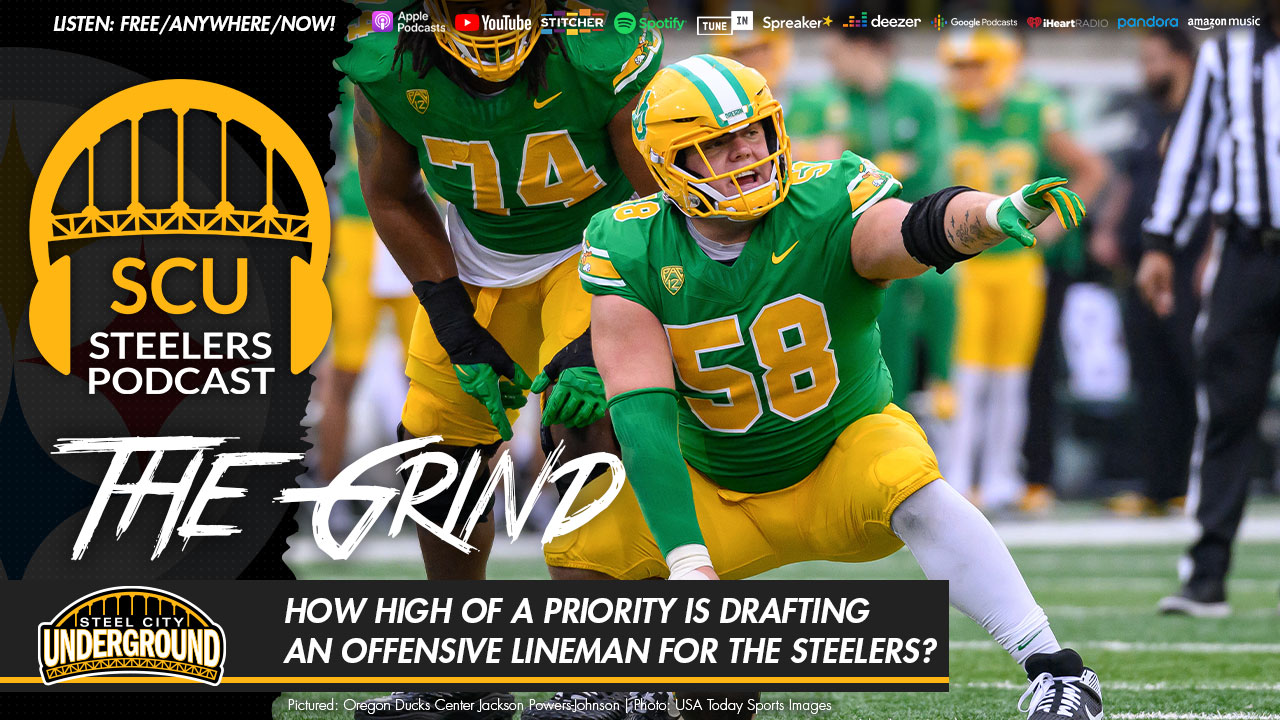Is Fantasy Football good for the sport of football?
Fantasy Football.
Those two words are as polarizing as ever in 2016.
Almost every football fan I speak with is divided on their feelings over the game: some eat, sleep and breathe it, while others are content with simply being fans of the nation’s most popular sport.
If you’ve been living under a rock for several decades, here is the skinny on Fantasy Football: people from all walks of life, young and old, male or female, create “teams” of players, who are graded by their performance in each week’s real-life football game. Say you were a fantasy “owner” and you had Antonio Brown on your team last year… chances are, you were very happy with his statistics, because he overshadowed other wide receivers by-and-large. A 100 yard receiving game from Brown meant more points for you, maybe even a bonus for eclipsing the century mark. Yards are a good benchmark for most positions. Receptions count for a point, half-point or no points, depending on your league’s rules. Of course, touchdowns are the gold standard by which, just like in real life, more touchdowns means a higher liklihood you will “win.”
What you “win” is dictated by where, when, and how you play.
- Typically, fantasy players join leagues: these leagues can be made up of friends, family, or complete strangers.
- Each league has X amount of teams, all with their own rules.
- Usually, no teams within the same league are permitted to share the same players.
- Some of these fantasy leagues play for fun or bragging rights.
- Others get more serious with real money on the line.
It’s that “serious money,” which has caught the attention of an entire nation over the last year, with a new style of fantasy sports known as Daily Fantasy Sports, or DFS. Even if you are living under that rock, chances are you have seen an ad for the flagship companies in the fantasy sports industry, DraftKings and FanDuel. (My guess is, with the sheer amount and frequency of DFS advertisements, your rock is even sponsored by one of the two companies mentioned.)
In most businesses, getting big and successful is a good thing, however, the wildfire which has been DFS over the course of a year or so, has gotten it’s share of negative press.
Regardless, Fantasy Football continues to grow, year-after-year; that’s why I’ll ask the title question, “Is Fantasy Football good for football?”
In case you were wondering, when I refer to “football,” I’m referring to it in general terms: the major DFS sites not only offer NFL fantasy games, but they also cover college football…and even Canadian Football. (That’s no typo: you can play fantasy CFL if you need your fantasy fix.)
To answer the question objectively, I have to go back several years,when the the sheer popularity of today’s Daily Fantasy Sports reminds me of a time when online poker was all the rage. Specifically, the poker of choice was Texas Hold’Em, but like DFS (which has branched into all major sports) online poker houses also offered variations of the game, such as Omaha. It was a widespread phenomena much like Fantasy Football.
Being part of the poker fad myself, I grew to love game, as did millions of others, who were playing online. The poker community grew exponentially overnight, with a large amount of players and fans alike. A game once reserved for professional gamblers now opened it’s doors for everyone from college students to retired factory workers. The popularity of online poker propelled television programs, such as ESPN’s World Series of Poker, and Travel Channel’s World Poker Tour, to new heights.
Much like DraftKings and FanDuel, there wasn’t a commercial break or magazine ad that didn’t feature the most popular poker hubs, such as Party Poker, Poker Stars and Full Tilt Poker.
Wherever you looked, poker was all the rage. Those college kids and retired persons were putting extra money in their pockets. The online companies soared to mega-corporation status. Tournament entries were through the rough, with pots (winnings) reaching record highs. Televised poker catapulted the Travel Channel (of all networks) into “must-see TV.”
Then something happened: that something was Las Vegas and the casino magnates. The big players in the casino world started balking; online poker was hurting their business. They lobbied to shut it all down.
And they did.
It started with accusations and name-calling:
- Online poker was “illegal gambling.”
- “Fixed.”
- It “funds terrorism.”
The reports were nothing more than allegations, at least for those who knew better. Party Poker, for example, was a legitimate business based in the UK. The company was publicly traded on the London Stock Exchange.
It doesn’t get more legit than being a publicly traded company with shareholders and a board of directors.
Investigations followed, which proved the computer algorithms used to deal virtual playing cards online, had the same probability as those real cards dealt in a physical casino; crushing any cries of cheating in the Internet version of the game. The major difference, with the computer-generated game, is that a poker player could see 4 or 5 times the amount of hands dealt in a hour (increasing the amount of times a random event, including unlikely odds-defying events, would occur.)
It did not increase the percentage of which those events occurred: just because it happened more often, didn’t mean it happened more than it should.
Online poker proved it was legit, but that wasn’t enough for the casinos: they wanted more. Much more.
Las Vegas and it’s various entities felt as though online poker was cutting into their brick-and-mortar casino business. They couldn’t see the forest for the trees, in that online poker was bringing them more business, as the WSOP and WPT brought willing first-time players into their buildings.
The casinos weren’t happy with new business: they wanted all business. They cried that online poker is gambling, and should be outlawed (which would conveniently force players to only play in their establishments, or “approved” online sites, which they would also, conveniently, operate.)
The problem with poker is that it’s the one game where the casino doesn’t set odds: therefore it’s not technically gambling… at least not 100% gambling. Any seasoned poker player can tell you the game requires skill to play, and while an element of chance exists, the probability of a lucky outcome is outweighed by a talented player who knows when, and how, to place bets. Bets which are controlled by the individual, and turn the odds into one’s favor; poker players can win hands without showing their cards, betting higher percentage hands or “stone cold” bluffing bad ones. It happens often, proving the element of skill versus gambling.
Poker is a skill game, whereas roulette, where players have no means to control an outcome, is gambling.
I understand, you’re probably asking “what does any of this have to do with fantasy football?”
Everything.
Wherever you look today, you’re likely to see a Fantasy Football advertisement, magazine, or even a TV show. In fact, ESPN just dedicated an entire weekend marathon of Fantasy Football coverage. It’s everywhere and accessible to everyone, much like poker.
Even my wife is into Fantasy Football: she runs an entire league.
People that were once casual observers are now hardcore followers. They watch every game, know every detail, and pay attention to all things NFL. It’s translated to record ratings, and dozens of spinoff programs from Hard Knocks to the aforementioned marathon.
Yet, the explosion of Fantasy Football may be doomed to the same fate as what happened with poker, despite the fantasy game driving the popularity of the league to new heights. It’s this explosion which caught the attention of the gambling conglomerates. Fantasy football is now in their sights as poker was their target in the late 2000’s.
Fantasy Football is everywhere, and the casinos don’t like it. Vegas controls sports betting in the United States, and they want their “share” (which is really “all of it,” just like poker.)
The first smear campaign by the casinos was attempting to ruin the credibility of DFS by claiming a DraftKings employee used “insider trading” to win a large prize on the FanDuel. Insider trading is defined as: the trading of a public company’s stock or other securities (such as bonds or stock options) by individuals with access to nonpublic information about the company. For a DraftKings employee to have, in the words of their accusers, cheated, they would have needed private information about FanDuel: the competitor’s website! (This is akin to Coca-Cola sending a spy into Pepsi to steal trade secrets: a preposterous claim to say the least.)
Those outlets had to backtrack on their misreporting, by retracting the word “insider trading,” but the word was already out: this wasn’t going to stop those trying to discredit DFS. The sentiment is, for those fans and players who are new and/or unfamiliar with daily fantasy, it might dissuade them from playing and/or signing up. This was a deliberate tactic behind the cheating accusations, whether those claims had merit or not: eliminate new business, and you eliminate the rise of DFS.
However, for those already playing, they knew the reports were fishy from the start. The reported information in which the DFS employee allegedly used to “gain an advantage” was nothing more than a list of ownership values for players across the different entries on DraftKings. For example, Tom Brady might be owned by 60% of all entries. Thus, there’s a discernable advantage to choosing a different player, say Carson Palmer, who is owned by only 5% of entries. (In that way, the entry is more unique and could break more ties, moving the player up the payout chart.)
Conveniently left out of the reports, is that anyone could go online and see the ownership values, from day-to-day.
In addition, ownership values in DraftKings would not have much bearing in a FanDuel game, or vice versa. On another site, the values may be skewed much differently. Brady could theoretically be owned 5% and Palmer 60% (those are extreme values, but illustrate a potential disparity.)
Furthermore, the FanDuel site uses a kicker position in their entries, whereas DraftKings does not. Thus, one full position in the lineup would have have this “advantage” and the player would have to make an educated guess as to who to put on their daily roster.
Taking it even a step further, just because you select a player, doesn’t mean that player will perform in a way that will help any entrant win. What happens if you attempt to make a more unique lineup by selecting the lower-owned Palmer… and he has a bad game?
This contributes to the same skill vs. luck aspect which exists in poker, where there is an element of selecting players who consistently perform well, as opposed to making risky choices on those who do not. Would any player risk using a QB who has thrown more interceptions than touchdowns, over scoring machines like Cam Newton or Aaron Rodgers?
Of course not!
So why are the casinos, who successfully shutdown online poker, trying to do the same with Fantasy Football? Why do they want to make Fantasy Football look bad for the sport?
Simple answer: money.
Like poker, the casinos believe online players are spending money that would otherwise be spent in their gambling halls, if the online games were not available. They believe this is causing their casinos to lose money: money they’d never have in the first place. Their train of thought assumes people betting on DFS (or poker) would travel to Las Vegas, or regional casinos, to do the same. It’s like believing someone would spend money on milk instead of soda: if sugary drinks were outlawed, you could buy and drink milk instead.
However, the two items are mutually exclusive, and thus flawed logic, but this hasn’t stopped the casinos in their attempts to discredit DFS, while also flexing their legislative muscle. The casinos commissioned Senate Minority Leader Harry Reid to outlaw DFS in the state of Nevada, which has already happened.
Conveniently (that word again) Reid’s home state is Nevada: he also served as chairman of the Nevada Gaming Commission from 1977 to 1981.
They have inspired advocates in other states, such as in New York and Florida, to ban fantasy sports, with the wheels in motion to ban games across the country, in their attempt to cash in on the fantasy craze for themselves (regardless of how daily players, or the big two sites, feel.)
Their accusations about fantasy football are the same as those against online poker years ago, using unfounded claims to discredit those businesses and their patrons. Those accusations hurt an entire poker industry, affecting millions of players and employees tied to poker around the world. When online poker shutdown, poker players lost millions of dollars overnight, as the government seized funds from the major poker sites.
Many of those players never received their money back.
Employees of those sites, many of whom worked from home, lost their jobs.
The casinos promised “safer, legal alternatives” to the offshore websites. Over 5 years since the “Black Friday” crackdown, those alternatives never materialized: yet, the same casinos were able to outlaw DFS games in their home state overnight.
It begs the question: do the casinos care about the legality, safety and fairness of online games?
Or are they only trying to protect their own self interests?
I believe we already know the answer to that question, however, fantasy football may have one edge in their favor.
While the federal government has no laws protecting online poker, they have already ruled in favor of fantasy football being legal. This could protect sites such as DraftKings for the near future, but one could only hope the gaming houses don’t flex their corporate muscle, and squeeze the DFS sites out of existence (as they did poker.)
Should that happen, I would argue that it would have a tremendous impact on the growth of the NFL.
Consider a Monday night game with Team A playing Team B. Most casual viewers have no vested interest in the game if they are a fan of Team X. However, if they play fantasy sports and have a player (or multiple players) from Teams A and B playing, it increases interest in the game… which increases TV viewership… which increases revenue and the overall growth of the game.
Canning fantasy football might not only kill that momentous growth, but also turn fantasy fans against the greedy casino business.
Or worse: football itself.
I would caution those businesses to tread lightly, because the football community is much larger than the poker community ever was: if you ever tuned in on a Sunday afternoon, they are certainly more vocal as well.
Wives, kids, parents and grandparents might be willing to go to war for football. That may not be a war the major casinos want to wage with their potential clientele.
